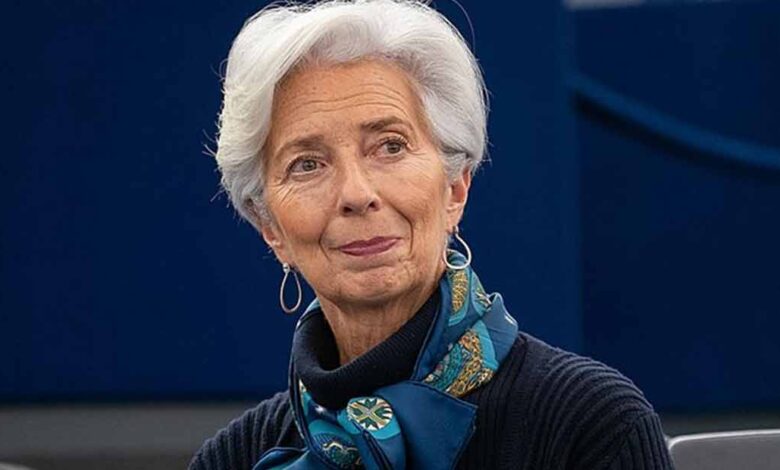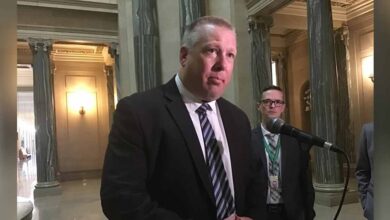
European Central Bank’s leader Says ‘Interest Rates Will Stay High as Long as Necessary,’
On Monday, the head of the European Central Bank (ECB) made it clear that they intend to maintain high interest rates for as long as necessary to combat inflation, even though this has an impact on business activity. Christine Lagarde, the ECB’s leader, expressed understanding for homeowners grappling with increased mortgage payments.
Lagarde emphasized that interest rates would remain elevated due to persistent inflationary pressures in the 20 nations using the euro currency. Factors such as strong spending on vacations and rising wages have slowed the descent of price levels, despite a sluggish economy. In August, the annual inflation rate in the eurozone only slightly eased from 5.3 percent in July to 5.2 percent.
Addressing the European Parliament’s committee on economic and monetary affairs, Lagarde reiterated the ECB’s commitment to bringing inflation back to its medium-term target of two percent promptly. “We remain determined to ensure that inflation returns to our two per cent medium-term target in a timely manner,” Lagarde told the European Parliament’s committee on economic and monetary affairs. “Inflation continues to decline but is still expected to remain too high for too long.”
This month, the ECB raised its benchmark deposit rate to a historic high of four percent, marking a significant increase from the previous rate of minus 0.5 percent in July 2022. Lagarde acknowledged the challenges posed by such rate hikes, particularly for households with variable-rate mortgages.
Analysts believe that the ECB may halt further rate hikes due to signs of weakening in the European economy. In contrast, other central banks, like the Bank of England and the U.S. Federal Reserve, recently opted to postpone rate increases as they approach the end of their aggressive tightening cycles.
Inflation surged as the global economy rebounded from the COVID-19 pandemic, leading to supply chain disruptions. Additionally, the conflict in Ukraine caused energy and food prices caused inflation to soar.
Lagarde asserted that the current high interest rates can significantly contribute to reducing inflation if maintained for an extended period. The ECB projects that inflation will decline to an average of 2.1 percent in 2025, following a peak of 10.6 percent in October.
Higher interest rates are a primary tool used by central banks to combat excessive inflation. They affect the cost of borrowing across the economy, making it more expensive for purposes like home purchases and business expansion. While this can curb inflation, it also carries the risk of hampering economic growth.
The ECB’s elevated rates have already led to a marked slowdown in real estate transactions and construction, which are particularly sensitive to changes in credit costs, and have put an end to the long-standing rise in home prices in the eurozone.
Lagarde pointed out that the economy experienced stagnation in the first half of the year, and incoming data suggests continued weakness in the July-to-September quarter. Despite this, ECB forecasts anticipate an economic rebound as inflation subsides, providing people with more spending power. Lagarde emphasized that their baseline outlook does not foresee a recession.








































